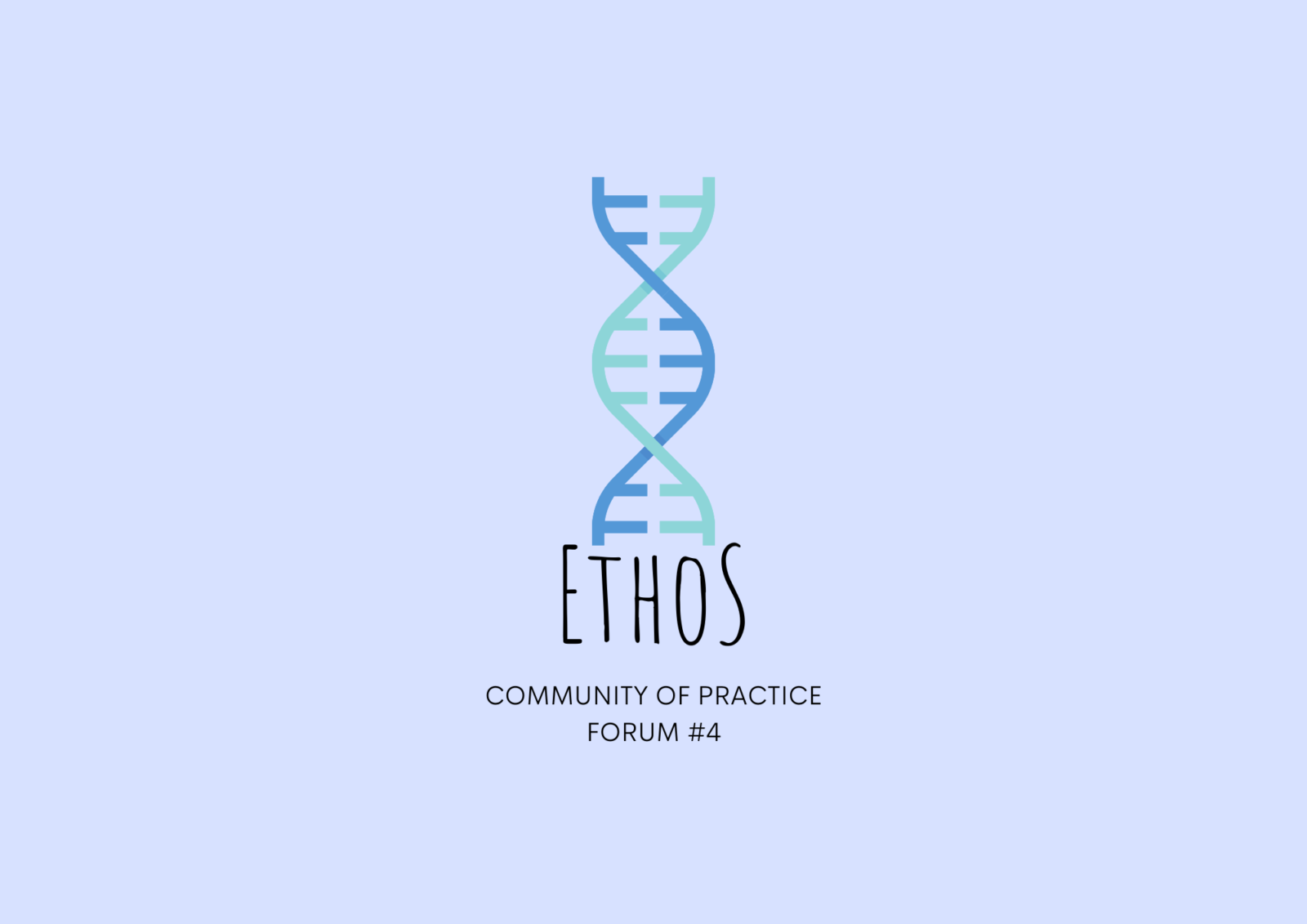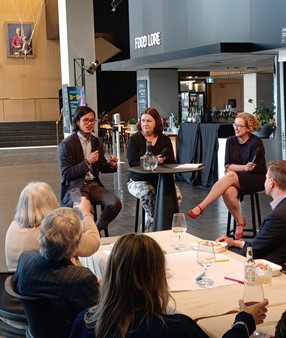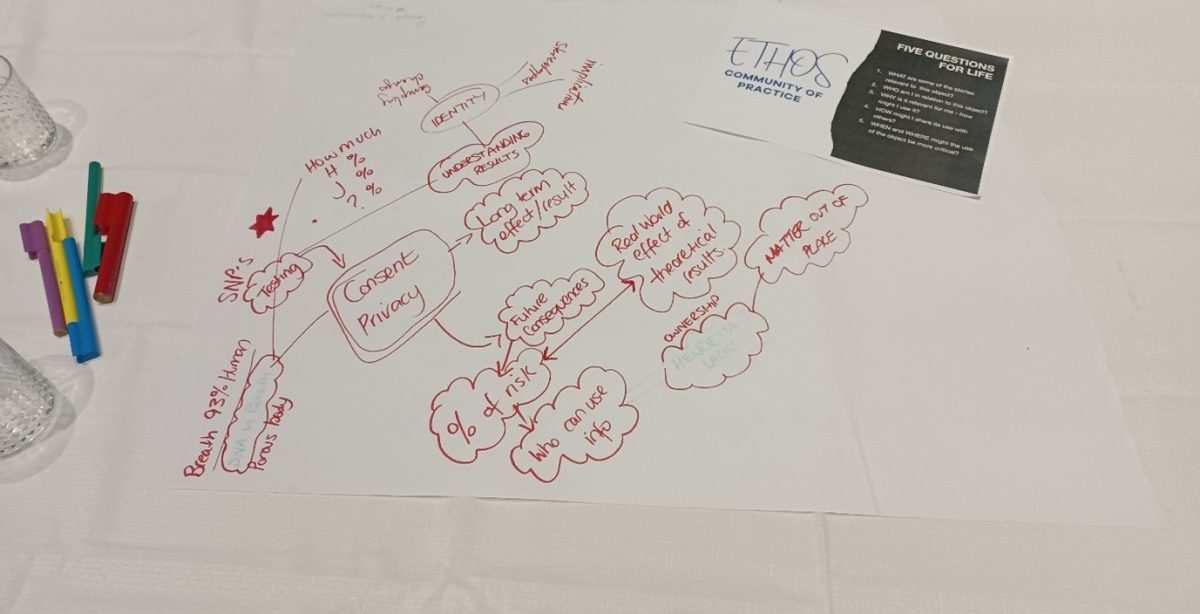Posted 5 Dec

Ethos: The ethics of DIY DNA
MOD. hosted its final Ethos Community of Practice for 2021 in November. This endeavor looks at the ethics of technology and research – in this case the ethics of DIY DNA tests. It aims to foster a culture of ethical questioning amongst researchers and the public.
This forum looked at the ethics of DIY DNA tests as a starting point to explore future-focused ethical questions around its impact on social issues, research, and technological development. Dr Helen Pynor outlined her work (via video) with Dr Jimmy Breen around the nature of DNA. Particularly, she discussed how DNA both identifies an individual and their family and can also be easily and inadvertently shared. Next, a short series of videos and TikToks showed the different reasons people take DNA tests. This ranged from finding their familial, cultural and ethnic identities to early sex identification of their unborn foetus.
A panel discussion between Dr Kristin Alford, Prof Leanne Dibbens, and Dr Eric Hsu provided further ethical provocations. We then considered how these ethical questions shape our thoughts around DNA tests, cultural identity, family, race and health.

The rapid advancement of genome sequencing technologies in recent years has allowed us to gain insight into certain diseases. Leanne is a research geneticist who looks for mutations in DNA. These mutations may explain “neurological disorders such as epilepsy, intellectual disability, and autism”. A positive of this research is that it can provide answers to people. For example, Leanne noted that mothers often feel guilt about why their child may have an intellectual disorder. This guilt may be assuaged if they find potential causes within their child’s DNA.
Additionally, Leanne touched on the disease prognosis capabilities that DNA sequencing can provide. For example, if an individual had a “highly likely pathogenic mutation” in a gene related to the kidney, this information could help them take preventative action by modifying their lifestyle to reduce the risk of kidney disease. Leanne added the caveat that genetic mechanisms are not absolute predictors of disease. Consequently, communicating genetic disease risk information to people must be done in a careful, ethical way to avoid undue anxiety.
We explored the practice of people using DNA tests to find identity and connection with their cultural heritage and roots. Some participants were just mildly curious about the mix of different backgrounds they may have. Conversely, we also touched on more insidious uses of ancestry DNA tests, such as white supremacists attempting to use them as a “proof of whiteness”.
One TikToker wanted to find more about her African history because she didn’t know where exactly her ancestors were from when they were taken into slavery. The DNA test results said that she shared “genetic ancestry with the Tikar people in Cameroon” and she clearly found considerable meaning from this answer.
Interestingly, another participant’s mother had a DNA test and found out that their family had ancestry from a specific culture. However, they had no exposure to that culture and therefore didn’t feel a cultural connection, so weren’t sure what to make of the DNA result. Contrastingly, they referenced other people who felt a connection to that culture despite not being genetically related. This highlights the complexities of using a seemingly specific, scientific test to rubber stamp meaningful but nebulous concepts like culture and race.

DNA sequencing technology has advanced rapidly over the last decade. Leanne said that they no longer need to look at “one gene at a time”, but “can look at virtually all 20,000 genes that we have as humans in a matter of … weeks or months”. Consequently, this technological advance is leading towards more affordable and accessible DNA sequencing equipment at the consumer level. For example, Helen referenced “a product by Oxford Nanopore Technologies that produces DNA sequence reads in real time with very affordable devices that are a fraction of the cost of setting up a full sequencing lab”.
We discussed ethical questions around the “democratisation” of the DNA sequencing process. On one hand, it may open doors for people to engage with genomics, who wouldn’t have otherwise had this opportunity. However, having the ability to sequence DNA doesn’t give a person the expertise to analyse and communicate very complex genetic data, as Leanne noted. Incorrect or poorly communicated information about DNA tests can lead to negative effects on people’s mental health or even their views on race. Additionally, the expansion of access to DNA sequencing technology will make regulation and ethical oversight of the practice significantly more difficult.
The Ethos Community of Practice is made possible with funding through the Deputy Vice-Chancellor of Research and Enterprise. The previous Ethos forum investigated the ethics of smart devices. We hold Ethos events regularly at MOD. Check out our events page for more details!
Samuel Wearne was the rapporteur for this forum and is a moderator at MOD.